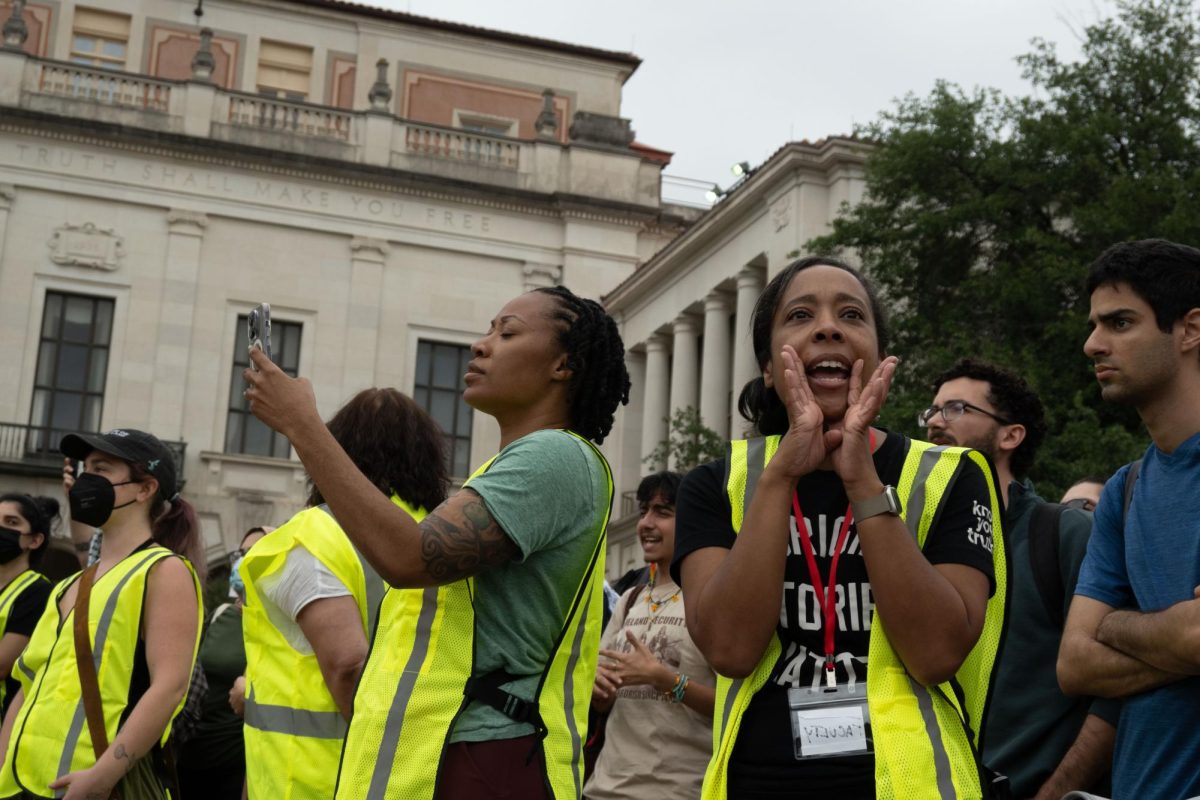Austin City Council members may avoid prosecution for allegedly violating the Texas Open Meetings Act by entering into an agreement with the Travis County Attorney’s Office.
Mayor Lee Leffingwell and a lawyer representing Council Member Mike Martinez entered into an agreement requiring council members to follow open meetings laws and take online classes educating them about the law, according to The Austin American-Statesman. In the article, attorney Joe Turner, who represents Martinez, said members who sign the agreement will not face charges or fines.
Under Section 551 of the Texas Government Code, failing to follow the Texas Open Meetings Act is a misdemeanor punishable by a fine of up to $500 and up to six months in jail.
In 2011 Travis County Attorney David Escamilla began an investigation after local activist Brian Rodgers issued a complaint to Escamilla’s office accusing council members of violating the Open Meetings Act by sharing information with one another about items the council would discuss in future meetings.
Under the act, governing bodies must notify the public of the time, location and content of meetings. The act requires a quorum, or majority of members, be present to conduct business during public meetings. The governing body may convene a closed session to discuss property transactions, contract negotiations, the deployment or implementation of security measures, gifts and donations, personnel matters and litigation.
Governmental bodies may only take final action on a matter discussed in a closed session during an open meeting.
Before Thursday’s city council meeting, Leffingwell said he would not offer further comment on the case and beyond his statement in the Austin American-Statesman.
“I’m happy that this process has finally concluded and determined that there were no violations,” Leffingwell told the Statesman Wednesday. “As always, we will continue to uphold the highest standards of transparency at City Hall.”
Former Council Member Randi Shade, who held office at the time of the accusations, said in a statement Wednesday that she accepted the deal over the summer.
“I never knowingly conspired to circumvent the Texas Open Meetings Act, and over this past summer I entered into an agreement for deferred prosecution in an effort to put the investigation behind me,” Shade said.
Shade lost re-election to current Council Member Kathie Tovo in 2011. In the statement, Shade said council members met with one another outside public meetings long before her term began in 2008.
The Daily Texan reported in 2011 that Rodgers accused Leffingwell of meeting with two council members at a time in his office for an hour before each city council meeting. Meeting with only two members would prevent the presence of a quorum and a violation of the act.
Wanda Cash, associate director of the School of Journalism, said she found it interesting that the agreement includes online courses on the act. Officials who are members of a governmental body subject to the act are required to complete Open Meetings Act training 90 days after assuming the responsibilities of their office, according to Section 551 of the Texas Government Code.
“Apparently they weren’t paying attention the first time,” Cash said.
City spokesperson Roxanne Evans said the city has spent $343,602.73 hiring law firms to advise city officials on the investigation and on open meeting topics since the investigation began.
Escamilla declined comment Thursday, because the investigation is still ongoing.
Printed on Friday, October 19, 2012 as: Council investigated amid alleged violation



















